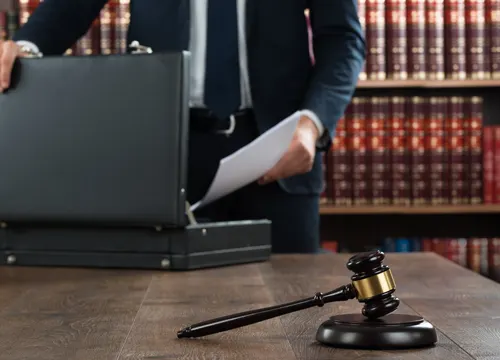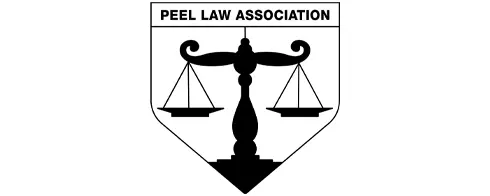Understanding the Bail Hearing Process
Bail is a critical part of the criminal justice process in Canada. When someone is arrested, their ability to secure release before trial depends on a successful bail hearing. A strong bail plan and representation at this stage can make a substantial difference, helping the accused avoid unnecessary detention and prepare for their defense while living at home.
What is Bail?
Under the Criminal Code of Canada, bail, or “judicial interim release,” is the process by which a person charged with a crime is released from custody while awaiting trial. The purpose of bail is to allow the accused to continue their life outside of detention, provided they abide by specific conditions, ensuring they will attend their trial and not pose a risk to the public.
When seeking bail, the accused (or their lawyer) must convince the court that they should be released pending trial. The court considers several factors, including the accused’s criminal history, the seriousness of the charges, and any potential risks to the public.
Primary, Secondary, and Tertiary Grounds for Bail
In Canada, the judge considers three main grounds when deciding whether to grant bail:
- Primary Grounds: This concerns whether the accused is likely to attend court as required. If the court is concerned the accused may not appear for trial or other court dates, bail could be denied.
- Secondary Grounds: This evaluates whether the accused poses a risk to public safety if released. The court examines any history of violent behaviour, previous criminal convictions, and the likelihood of the accused committing further offences while on bail.
- Tertiary Grounds: This considers whether releasing the accused could negatively impact public confidence in the justice system, especially if the alleged offence is particularly serious or shocking to the community.
Conditions of Bail
When bail is granted, the court often imposes conditions to help ensure compliance. Common bail conditions may include:
- No Contact Orders: Restricting contact with certain individuals, such as witnesses or alleged victims.
- Residence Requirements: Mandating that the accused reside at a specific address or with a surety (a person who supervises the accused while on bail).
- Curfews: Requiring the accused to remain indoors during specified hours.
- Prohibition on Alcohol or Drugs: In cases involving substance-related charges, the accused may be prohibited from consuming alcohol or drugs.
- Electronic Monitoring or GPS Tracking: In more serious cases, the court may order electronic monitoring to track the accused’s movements.
Failure to comply with bail conditions can lead to additional charges and potential re-arrest.
Role of a Surety
In some cases, the court may require a surety to secure the accused’s release. A surety is a person who agrees to take responsibility for the accused and ensure they follow bail conditions. The surety may be required to pledge a sum of money, which could be forfeited if the accused breaches their conditions. Acting as a surety is a serious commitment, and it is important to fully understand the role and responsibilities before agreeing.
How Nirwal Law Can Help with a Bail Hearing
A bail hearing is often the first and most crucial step in a criminal case. Securing release can enable the accused to continue working, attending school, and preparing a defense from home. An experienced lawyer such as Manbir Nirwal can help by:
- Preparing a Bail Plan: A bail plan may include residence details, proposed sureties, and a list of conditions the accused is willing to follow to secure release.
- Presenting Strong Arguments: A lawyer can present arguments addressing the primary, secondary, and tertiary grounds for bail, including case law to support the accused’s release.
- Challenging the Prosecution’s Evidence: Where appropriate, a lawyer may challenge the evidence presented by the Crown to prevent unjustified detention.
- Negotiating Bail Terms: Lawyers can negotiate with the Crown to agree on conditions that are reasonable and likely to be accepted by the court.
In addition to bail hearings, Nirwal Law Firm is also highly skilled in handling Break and Enter cases, offering expert legal guidance to protect your rights and secure the best possible outcome.

Choosing Nirwal Law for Bail Hearings
A skilled criminal defence lawyer can significantly impact the outcome of a bail hearing. Securing bail requires presenting a compelling argument to the court and addressing any concerns related to flight risk, public safety, and confidence in the justice system. With professional guidance, clients have a better chance of release under fair conditions, allowing them to continue their life and prepare a strong defence.
At Nirwal Law, we understand the urgency of bail hearings and the impact they have on your freedom and future. Criminal Defence Lawyer Manbir Nirwal works closely with clients to develop effective bail plans, present robust arguments, and advocate tirelessly for release. If you or a loved one is facing a bail hearing, contact criminal defence lawyer Manbir Nirwal to discuss your options and take the first step toward regaining your freedom.

Bail Hearing FAQs
Key Questions About Navigating Bail Hearings
Several factors influence the outcome, including the nature of the charges, the accused’s criminal history, the risk of flight, and the potential threat to public safety. At Nirwal Law, we present strong arguments, emphasizing factors favoring release, such as community ties and employment, to secure the best possible bail conditions for our clients.
Yes, bail can be denied if the court deems the accused a flight risk or a danger to the community. However, alternatives like surety bonds, house arrest, or strict bail conditions may be considered. Criminal Defence Lawyer Manbir Nirwal can explore all possible options to advocate for your release, providing comprehensive representation throughout the process.
The timing of a bail hearing can vary depending on the court’s schedule and the case’s complexity. Generally, a hearing can be scheduled within a few days. Nirwal Law works diligently to expedite the process, preparing thoroughly to ensure a strong presentation in court, advocating for a prompt and favorable outcome.
A surety is a person who agrees to supervise the accused and ensure compliance with bail conditions. They are financially liable if the accused fails to appear in court. At Nirwal Law, we help identify suitable sureties and prepare them for their responsibilities, enhancing the chances of securing bail for our clients.
Violating bail conditions can result in revocation of bail and additional charges. The accused may be returned to custody. At Nirwal Law, we emphasize the importance of adhering to all conditions and provide guidance to help clients comply. If a violation occurs, we offer legal support to address the situation and mitigate consequences.
Generally, yes, but work arrangements may need to comply with any conditions set by the court, such as curfews or travel restrictions.
Client Reviews
EXCELLENTTrustindex verifies that the original source of the review is Google. Had a great experience working with Manbir from start to finish. He walked me through every step, gave clear and practical advice and helped achieve a solid outcome. Felt supported the whole way through. Would definitely recommendTrustindex verifies that the original source of the review is Google. Just hired manvir he seems very transparent about what is going on I'm very confidentTrustindex verifies that the original source of the review is Google. Manbir is an amazing criminal defense attorney. From our very first meeting, he listened carefully, making sure to answer all my questions in plain language, and he mapped out a clear strategy. His courtroom expertise and dedication gave us an excellent outcome, and his compassion and communication made such a stressful process ten times more manageable. If you need a knowledgeable, professional advocate who truly cares, this is him. I highly recommend Manbir!Trustindex verifies that the original source of the review is Google. Manbir is by far a very competent lawyer. His knowledge and expertise are exceptional. Highly Recommend him.Trustindex verifies that the original source of the review is Google. best criminal lawyer in brampton they provided the best suggestions which was required.Trustindex verifies that the original source of the review is Google. Manbir Nirwal is an intelligent lawyer who goes to the depth of any case he handles. He is an honest and friendly person to talk to. I will definitely recommend him if you are looking for a good lawyer.Trustindex verifies that the original source of the review is Google. Great service and knowledgeable staff.
Contact Us for Bail Hearings
Reach Out for Experienced Bail Hearing Representation







